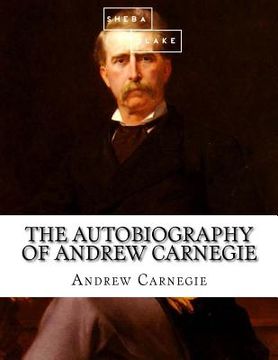Reseña del libro "The Autobiography of Andrew Carnegie (en Inglés)"
The Autobiography of Andrew Carnegie is a very well written and interesting history of one of the most wealthy men in the United states. Among his many accomplishments and philanthropic works, he was an author, having written, besides this autobiography, Triumphant Democracy (1886; rev. ed. 1893), The Gospel of Wealth, a collection of essays (1900), The Empire of Business (1902), and Problems of To-day (1908)]. Although this autobiography was written in 1919, it was published posthumously in 1920. Andrew Carnegie (November 25, 1835 - August 11, 1919) was a Scottish-American industrialist. Carnegie led the expansion of the American steel industry in the late 19th century and is often identified as one of the richest people and Americans ever.[4] He built a leadership role as a philanthropist for the United States and the British Empire. During the last 18 years of his life, he gave away to charities, foundations, and universities about $350 million (in 2015 share of GDP, $78.6 billion)-almost 90 percent of his fortune. His 1889 article proclaiming "The Gospel of Wealth" called on the rich to use their wealth to improve society, and it stimulated a wave of philanthropy. Carnegie was born in Dunfermline, Scotland, and emigrated in 1848 to the United States with his parents. Carnegie started work as a telegrapher and by the 1860s had investments in railroads, railroad sleeping cars, bridges and oil derricks. He accumulated further wealth as a bond salesman raising money for American enterprise in Europe. He built Pittsburgh's Carnegie Steel Company, which he sold to J.P. Morgan in 1901 for $480 million. It became the U.S. Steel Corporation. After selling Carnegie Steel, he surpassed John D. Rockefeller as the richest American for the next couple of years. Carnegie devoted the remainder of his life to large-scale philanthropy, with special emphasis on local libraries, world peace, education and scientific research. With the fortune he made from business, he built Carnegie Hall and the Peace Palace and founded the Carnegie Corporation of New York, Carnegie Endowment for International Peace, Carnegie Institution for Science, Carnegie Trust for the Universities of Scotland, Carnegie Hero Fund, Carnegie Mellon University and the Carnegie Museums of Pittsburgh, among others.

